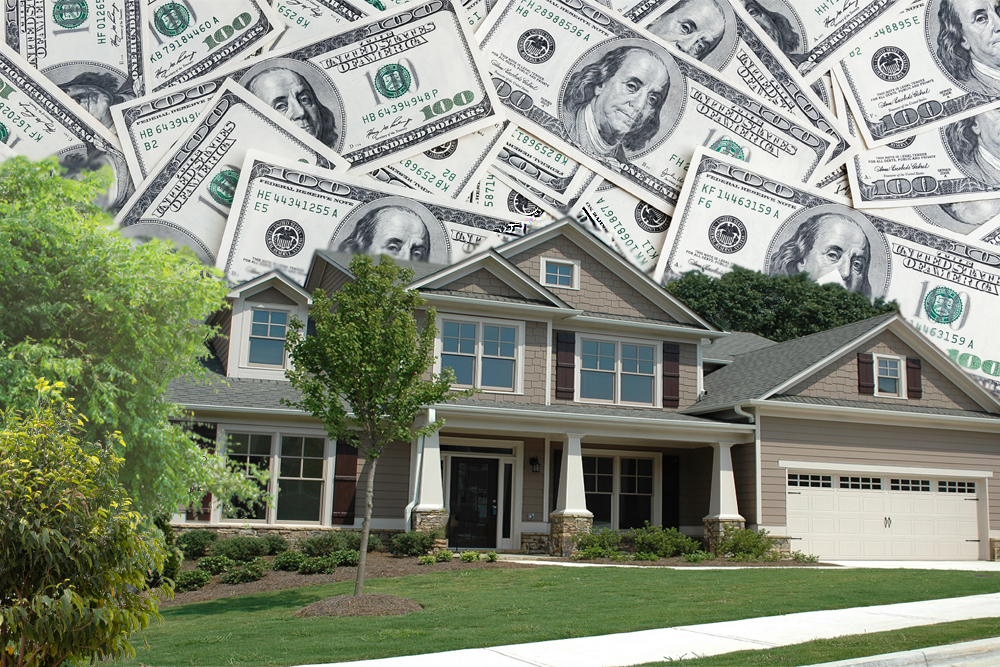
Council Approves Resolution For Staff To Calculate 8 Percent Tax Rate
By Terra Rivers | Managing Editor
Last night, the San Marcos City Council considered a resolution directing staff to calculate the voter-approval tax rate in the manner provided for a special taxing unit by using an 8 percent threshold for revenue.
The item (#16) passed as part of the consent agenda with no discussion. However, during public comments, at least two people submitted statements discouraging the Council from raising property taxes.
The Council is allowed to consider a tax rate above the 3.5% cap established by Senate Bill 2, which was passed in the 86th legislative session due to the coronavirus pandemic.
Communities nationwide have been under local, state, and national disaster declarations since COVID-19 hit the country.
While SB 2 amends the Texas Tax Code to limit the amount a taxing entity (city, county, school district, etc.) can raise property taxes every year without voter approval, the law allows a city, county or taxing entity “to calculate the voter-approval tax rate,” formerly known as the Rollback Tax Rate, “of the taxing entity in the manner provided for a special taxing entity if any part of the taxing unit is located in an area declared a disaster area.”
The resolution passed by Council will allow the city to potentially establish a tax rate over the 3.5% cap so long as it does not exceed the previous 8% limit without seeking voter approval.
In May, the City of Dallas City Council considered a similar resolution, which failed eleven to three.
“Regardless of what you do today, we are going to present a budget that will have some service cuts,” said Chief Financial Officer Elizabeth Reich for the City of Dallas. “In August, when we present the city manager’s budget, you will see some game-changing things happening. That’s going to be necessary no matter what. What I’m not sure is whether it’s going to be palatable for everyone.”
While three council members stated the calculation was simply another option later, the majority of council members agreed another “tool in the toolbox” was only relevant if it was going to be used.
“We’re scaring the heck out of people,” said Council Member Omar Narvaez, District 6. “Even if we did eight percent, I don’t think we’ll come up with the funds we’ll need. We’re going to have to cut something.”
According to city staff, the city of San Marcos is projected to experience a $6.4 million shortfall in revenue due to the COVID-19 economic shutdown. The Council directed staff in April to begin work on finding areas where cost reductions can be made to compensate.
During a budget workshop on May 26, staff provided Council with an update on efforts to find areas where the city could reduce costs.
According to the City of San Marcos FY 2020 Budget, which totals $239 Million, “property tax appraisals have increased by 11 percent for FY 2020, and the city is seeing indications of continued growth for the future with the addition of residential developments, business growth, and continued economic development opportunities.”
The average home value for the tax year 2019 was $208,000, an increase of $13,000, or 6.7 percent from the tax year 2018, the budget states; sales taxes were projected to comprise 44.4 percent of FY 2020’s General Fund’s total revenue.
The city’s total budget for FY 2020 was $239 Million; thus far, city staff has identified a total of $4,644,086 in cost reductions through the FY20 General Fund; an employee innovation box is under review for additional reductions of $856,086.
Additionally, the FY 20 budget, sales taxes represents 44.4 percent of the total general fund revenue projected for the fiscal year 2020. “Sales tax receipts are the largest single revenue source supporting general governmental services in San Marcos.”
The Council aims to reduce costs by $5.5 Million and make up the remaining $900,000 through a utility franchise fee increase from 7 percent to 8 percent.
City staff is recommending the Council adopt the same tax rate of 0.6139 from the last few years.
Assistant Director of Finance, Melissa Neel, said if the city were to adopt the 3.5 percent No-New-Revenue (effective) tax rate, its budget would experience an additional $1.5M shortfall in revenue on top of the deficits caused by COVID-19.
Even with a tax increase, there is no guarantee the increased revenue will cover any potential budget shortfalls.
The City of San Marcos received $425,261 in COVID-19 funding from the Department of Housing and Urban Development. They also received $6.4 million in disaster relief funds for public transit expenses from the Federal Transit Administration.
The city council will still likely be required to make the decisions on where to cut spending for the upcoming year.
Council members will have to decide on what services will have to be cut back one, which could place them between a rock and a hard place on with residents and staff.
The Council is slated to review and potentially approve the FY 2021 budget and the 2020 Tax Rate in September.
“This is exactly the wrong thing to do at a time when so many people have lost their jobs and so many businesses are struggling to come back from the pandemic,” Lt. Governor Dan Patrick said in a statement to Corridor News. “The state has lost revenue as well, but we will not be raising taxes. We passed Senate Bill 2 — major property tax reform, to reduce taxes, not for local governments to find a loophole to raise them. The Mayor and City Council should talk to their constituents and reconsider this, as did the Dallas Mayor and City Council, who ultimately voted down an 8% increase in that city.”
Related Coverage:






